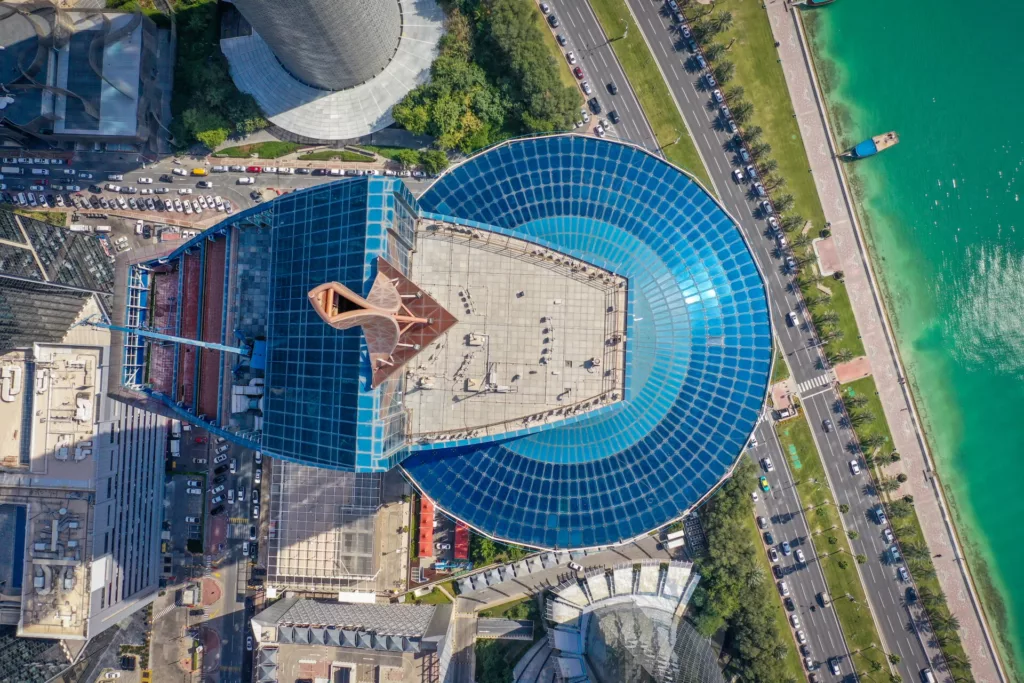
Among the vast array of topics from my trip to Doha, one stood out—energy transition. The shift from fossil fuels to renewables is a complicated challenge that crosses the realms of economics, policy, and sustainability. The stakes are high, and the goals are ambitious. But I must say, witnessing Qatar’s commitment to this shift was inspiring. Attending the Qatar Economic Forum in Doha was nothing short of an exhilarating experience. I was amongst a sea of more than 1,000 economists, policymakers, business executives and intellectual leaders from around the world, all buzzing with anticipation and bright ideas about our collective economic future. It’s not often that you find yourself surrounded by such a charged, dynamic crowd.
Qatar, with an astounding 18.3% of the world’s total natural gas reserves, is at the forefront of this global energy transition. And it’s not just about the reserves. The country is leveraging its substantial resources and low production costs to become one of the leading suppliers of gas and hydrogen. These elements, combined with the potential development of renewable energies like solar and wind for producing low-cost hydrogen, highlight Qatar’s vision for a green future.
Indeed, oil and gas revenues have been the lifeblood of Gulf economies for a long time. But these nations are not oblivious to the risks of relying solely on fossil fuels. The oil counter-shock between 2015 and 2020 acted as a wake-up call, urging governments to revisit their financial strategies and reduce their vulnerability to the volatile oil market. The ongoing energy transition is undoubtedly a substantial challenge, bringing into question the long-term sustainability of Gulf economies.
Addressing this challenge during the “Energy Minister Outlook” session on Tuesday, Minister of State for Energy Affairs and CEO of QatarEnergy, Eng. Saad bin Sherida Al Kaabi, pointed out that while governments’ energy transition policies are vital, they could inadvertently deter investment in fossil fuels, leading to a potential natural gas scarcity in the next decade. His words echoed around the conference halls:

It’s a reminder that a careful, considered approach to the energy transition is needed to avoid a knee-jerk reaction that could lead to unforeseen consequences.
Al Kaabi’s insight that the only factors sparing humanity and Europe this year were the warm winter and a global economic slowdown was indeed an eye-opener. It underscored the urgency of the energy crisis we may face if the world’s economy rebounds fully by 2024.
However, Qatar isn’t just forecasting gloom. Qatar’s role as a leading natural gas producer and exporter in the region is well-established. But what was also exciting to hear across various talks was how the country is stepping up its game to meet climate challenges. The nation is harnessing innovation to stay ahead of the curve. Al Kaabi noted that Qatar is set to produce a staggering 126 million tons of natural gas by 2026, and if the circumstances are right, it could push the capacity even further.
I couldn’t help but feel inspired by the resilience and foresight shown by Qatar’s leadership. The nation is adopting innovative technologies like carbon capture in projects like the North Field East Project and fostering advanced research at the Qatar Carbonates and Carbon Storage Research Centre. This commitment to a greener future is not just commendable, it’s the path forward for us all.
Moreover, by 2030, Qatar has pledged to reduce the carbon intensity of its liquified natural gas (LNG) facilities by 25% and expand the use of electric vehicles in public transport. This isn’t just talk—it’s action towards a more sustainable future.
But it’s not just about leveraging natural resources. Qatar is also integrating smart financial strategies into its plans. By aligning its financial infrastructure with its sustainability goals, the country is positioning itself to be a leader in the Gulf’s green transition.
In my view, Qatar is showing us a future where natural resources and financial planning are combined to achieve sustainability goals. It’s this kind of clear, pragmatic vision that will drive us all forward towards a greener tomorrow.
This trip to Doha left me with more than just pleasant memories; it gave me renewed optimism for the future. As we navigate this energy transition, there will be hurdles to overcome and challenges to face. But if countries like Qatar continue to lead with innovation, resilience, and vision, I believe we can create a more sustainable world.
And as for us at Chesamel, we are eager to contribute to this transition. Our goal is to find scalable solutions to complex challenges, and the energy transition is one such challenge that excites us. We look forward to playing our part in this journey, guided by the belief that a greener world is not just possible, it’s within our reach.


